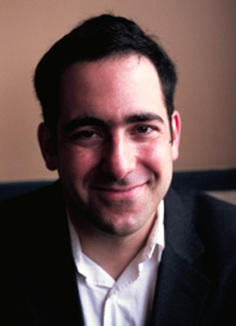Presentation by Paul A. Kramer (Vanderbilt University; Nashville, TN) on "Movements across Borders: Writing Histories of Transnational Activism between the U. S. and the Wider World"
Paul A. Kramer
Antiwar protestors carry an inflatable globe through New York City as part of the massive, worldwide protests of February 15, 2003 opposing the Bush administration’s drive towards war in Iraq
Abstract:
This paper, drawn from a book-in-progress on the transnationalizing of U. S., explores the history and historiography of social movements linking the United States with the wider world. It analyzes, engages with and critiques existing scholarship on transnational social movements, identifies key questions historians have asked and can ask about these movements, and presents categories into which cross-border activist campaigns can be organized for interpretive purposes. In the process, the paper asks broader questions about the present and future prospects of transnational history.
Bio sketch:
Paul A. Kramer is a historian of the modern United States whose scholarship centers on questions of racialized, gendered and class inequality, immigration, and US empire. He received his PhD from Princeton University, and is Associate Professor of History at Vanderbilt University. He is author of the prize-winning book The Blood of Government: Race, Empire, the United States and the Philippines (UNC Press, 2006), as well as numerous academic articles. Prof. Kramer is co-founder and co-editor of Cornell University Press’ “The United States in the World” series, and has received fellowships from Harvard University’s Warren Center, the National Endowment for the Humanities, Fulbright, the Smithsonian Institution and the American Council of Learned Societies. He has served as Program Chair for the 2009 annual meeting of SHAFR, on the advisory board of the Gilder Lehrman Institute of American History, and on the editorial boards of Diplomatic History, Labor: Working-Class History of the Americas, and Philippine Studies. Alongside his academic work, his public scholarship has appeared in New Yorker, Slate, the New York Times, Foreign Affairs, and other venueson themes relating to the United States’ role in the world, including investigative essays on the US-Mexican border, Hurricane Katrina, and the origins of water-boarding. His latest essay along these lines explores the little-known moment when Los Angeles first—and briefly—declared itself a sanctuary city. He is currently at work on two books: a methodological guide to the transnationalizing of US history, and a geopolitical history of US immigration policy in the long 20th century. His work can be found here.
The event will take place as a part of the MA colloquium of the History Department online via WebEx on January 18, 2021, 6.15 pm-7.45 pm (Berlin time).
Since the amount of spots is limited, please, register for the event at yulia.maximenkova@fu-berlin.de.
Time & Location
Jan 18, 2021 | 06:15 PM
WebEx Online Event


